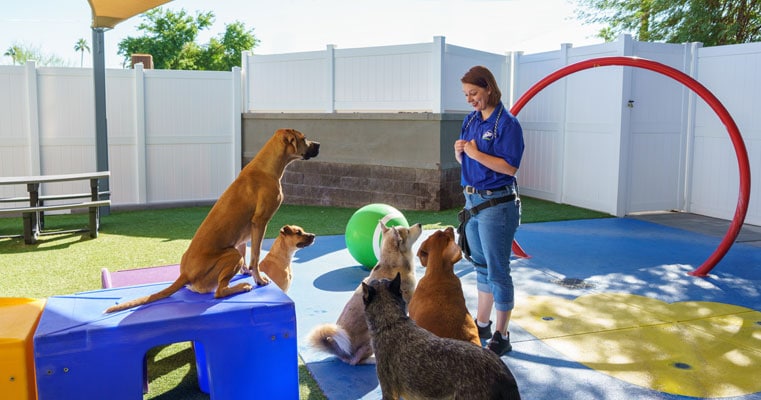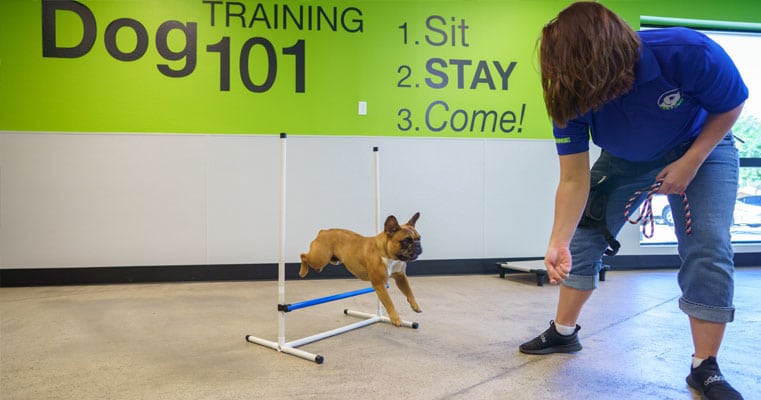Unlock Your Pet dog's Prospective: Proven Dog Training Methods for Success
Efficient canine training is a nuanced process that hinges on understanding canine actions and utilizing scientifically backed methods. By incorporating favorable reinforcement, developing clear commands, and prioritizing socialization, dog proprietors can grow an effective relationship with their family pets.
Comprehending Pet Habits
Understanding canine behavior is vital for efficient training and cultivating a favorable relationship in between pet dogs and their proprietors. A detailed grasp of canine body language, vocalizations, and social communications is essential for recognizing their emotions and needs. Pets connect mostly through non-verbal hints; as an example, a wagging tail may indicate excitement, while pinned ears can indicate worry or entry.

Moreover, ecological aspects play a substantial duty in forming a canine's habits. Modifications in regular, new environments, or the presence of strange people can bring about stress and anxiety or anxiousness in pet dogs. Recognizing these triggers enables proprietors to mitigate adverse reactions and develop suitable training methods.
Inevitably, a deep understanding of dog behavior lays the foundation for successful training techniques, boosting both habits and the overall bond in between the pet and its proprietor. Dog training. This knowledge is important for promoting a well-adjusted, delighted canine buddy
Positive Support Methods
Efficient training relies greatly on positive reinforcement methods, which have been revealed to generate considerable lead to forming desired behaviors in dogs. This approach includes rewarding a canine for exhibiting particular behaviors, thus enhancing the possibility that these habits will be duplicated. Rewards can take numerous forms, including treats, appreciation, playthings, or playtime, depending upon what inspires the individual pet dog.

It is vital to progressively eliminate rewards as the dog finds out the habits, transitioning to intermittent support. This technique keeps the habits with time while protecting against reliance on continuous incentives. By concentrating on favorable reinforcement, trainers can cultivate a relying on connection with their pet dogs, promoting a participating and healthy training atmosphere that enhances general obedience and performance.
Establishing Constant Commands
A fundamental element of successful pet dog training is the facility of consistent commands. Consistency in commands is critical for efficient interaction in between the canine and the instructor. When commands are uniform, pet dogs find out to connect details words with wanted behaviors, which increases the training process and enhances understanding.
To develop constant commands, it is essential that all member of the family utilize the exact same terms and gestures. If one person uses "rest" while another states "sit down," it can create complication for the pet. Select clear, distinct words for commands and make sure every person involved in the pet's training adheres to these selections.
Reinforce commands through constant practice, making sure that the pet dog gets enough possibilities to respond properly. When a pet dog efficiently complies with a command, prompt favorable support should follow.
Last but not least, hold your horses. Establishing constant commands requires time and initiative. With devotion and clearness, you will aid your pet create a solid understanding of expectations, ultimately bring about a mannerly companion.
Socializing and Direct Exposure
Interacting socially a canine is essential for promoting a positive and well-adjusted buddy. This procedure involves exposing your pet dog to a variety of environments, people, and other pets to create their social skills and adaptability. Early socializing, preferably between the ages of three to fourteen weeks, is important, as it lays the foundation for a dog's future behavior.
During socialization, objective to supply favorable experiences in different setups, such as parks, active roads, and homes with various other animals. Introduce your pet dog to numerous stimuli, including audios, views, and smells, making certain that each experience is satisfying. This exposure helps reduce worry and anxiousness, leading the way for an extra durable canine.
Involving in controlled team play sessions with various other pet dogs can likewise boost social cesar millan dog leash skills, educating your animal suitable interactions and boundaries. Focusing on socializing will dramatically contribute to your pet's general happiness and actions throughout their life.
Conquering Common Training Difficulties

Dogs may struggle to focus in unfamiliar or active settings. Gradually desensitize your dog to interruptions by beginning training in a quiet environment and slowly presenting more stimulations as they become competent.
In addition, behavioral problems like leaping or excessive barking can become discouraging. Address these by educating alternative behaviors, such as sitting calmly when greeting visitors. Consistency and patience are important; reinforce wanted habits constantly and prevent abuse, which can cause complication.
Finally, identify that each pet is special, and training timelines may differ. Tailor your strategy to your pet dog's individual needs, and look for specialist assistance if essential. With willpower and the right approaches, conquering these challenges can bring about a well-trained, delighted canine friend.
Conclusion
Finally, unlocking a dog's prospective necessitates a comprehensive method that incorporates an understanding of canine actions, the application of favorable reinforcement methods, and the facility of consistent commands. Early socializing and direct exposure to varied atmospheres additionally boost a pet dog's flexibility and self-confidence. By resolving typical training challenges with customized methods and perseverance, a participating and harmonious partnership between canine and handler can be fostered, eventually service dog training near me prices leading to a well-behaved companion capable of prospering in different scenarios.
Reliable dog training is a nuanced procedure that pivots on recognizing canine habits and utilizing medically backed methods.Recognizing pet dog actions is crucial for reliable training and promoting a positive partnership in between canines and their proprietors.Efficient training depends greatly on positive reinforcement methods, which have actually been shown to generate substantial outcomes in forming preferred behaviors in pet dogs. When commands are consistent, canines learn to link details words with preferred habits, which speeds up the training procedure and enhances understanding.
In final thought, unlocking a dog's possible Website demands an extensive approach that incorporates an understanding of canine actions, the application of positive support methods, and the facility of consistent commands.